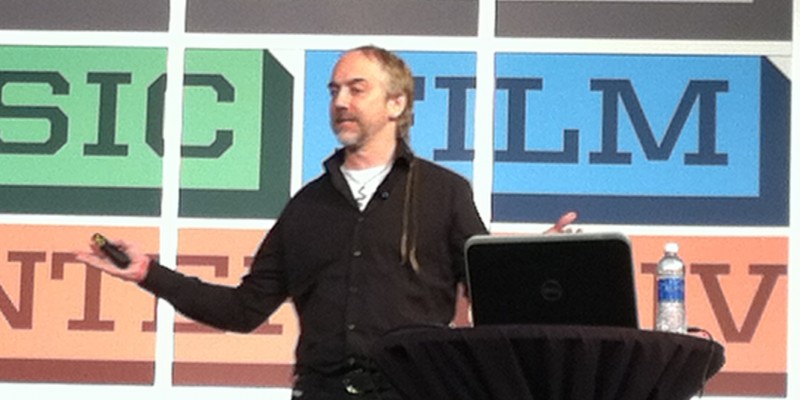Richard Garriott’s Father, Owen, was an astronaut. The neighbors on either side of his childhood home, Joe Engle and Hoot Gibson, were astronauts.
“Going to space,” Garriott said at SXSW on Monday, “seemed like something everybody just did.”
Garriott has since made millions developing video games (famously inserting himself into the Ultima series of role-playing games as his alter ego “Lord British”) but never lost his passion for spaceflight, nor his dream of its ubiquity. Years after his father’s last spaceflight, Garriot has poured huge amounts of his own money into the X-prize for manned spaceflight and his own company’s space adventures, which is the organization responsible for all private citizens who have gone into space to date.
Even so, Garriott is aware that public interest in human space flight has waned.
“For the past 30 years,” Garriott said, “we’ve really been stuck in low earth orbit.”
Sending humans to the International Space Station to perform experiments (as Garriott himself did on his own trip into space) is all well and good, but hardly the generation-defining feat that Neil Armstrong and Buzz Aldrin’s mission was. Grand goals for human spaceflight have long been absent. The space shuttle is gone, and the manned missions to Mars proposed in the Bush administration have been cancelled. Although, Garriott said, “They were never really funded in the first place.”
While things look grim, Garriott declared that “we’re entering a new golden age” of human spaceflight, that can be encouraged by following certain, common-sense strategies.
“We can’t take even one percent of our U.S. budget and spend it on something simply because it’s inspirational,” Garriot said.
The benefits, scientific and economic, must be made more clear to the general public. Protein crystals grown in orbit can (and already are) used in AIDS medications and vaccine research. Asteroid mining, while possessed of what Garriott called “a giggle factor” can be hugely profitable, if only the cost of actually getting into space can be lowered.
Lowering cost is the name of the game for Garriott. According to the mogul, a public-private partnership between NASA and individual spaceflight companies could decrease the costs of sending a spacecraft into orbit a hundredfold. Under such a scheme, NASA would sign a contract to buy or lease rocket boosters and other such components from a given supplier for set number of years, thereby opening the process to competition and lowering costs (a procedure NASA already follows for things like the Spirit and opportunity mars missions).
This would also further spur the private development of reusable spacecraft technologies, something Garriott and SXSW keynote speaker Elon Musk are already doing.
“Imagine if every time you went to the gas station, you crushed your old car, bought a new one and filled it with gas,” Garriott joked, referring to the fact that even the space shuttle had to be picked apart and rebuilt by NASA engineers every time it returned to Earth. Spacecraft that can return to Earth safely under their own power, Garriot said, are far more cost-effective.
Of course, there is one more, practical consideration. Given enough time, some natural disaster can and will eventually befall the Earth that will be devastating to the human race.
“Humanity needs to become a spacefaring race,” Gariott said, “in order to ensure our own survival.”


Comments are closed.